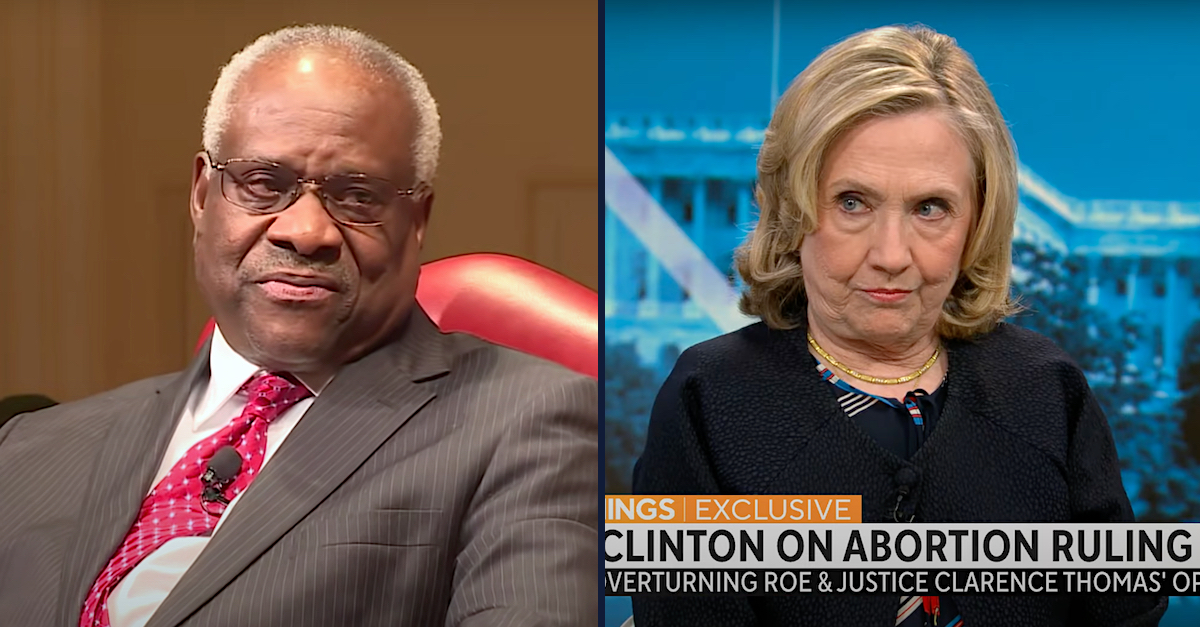
Clarence Thomas and Hillary Clinton.
In an appearance on CBS Mornings, former presidential candidate and Secretary of State Hillary Clinton (D) shared several of her personal opinions about Justice Clarence Thomas in the wake of the Supreme Court’s decision on Friday to overrule Roe v. Wade.
When asked by host Gayle King about Thomas’s concurring opinion to “reconsider past rulings on contraception and same-sex marriage,” Clinton verbalized her thoughts of Thomas dating back to the days they were both in law school.
“Justice Thomas has sort of floated this out there about contraceptive rights — contraception — and about same-sex marriages, but other justices have pushed back to say, no, he’s really sort of on his own with that,” King asked Clinton. “You don’t believe that?”
“He may be on his own, but he’s signaling — as he often did — you know, people — I went to law school with him,” Clinton answered. “He’s been a person of grievance for as long as I’ve known him. Resentment. Grievance. Anger. And he has signaled, ah, in the past to lower courts, to state legislatures — find cases, pass laws, get them up. I may not win the first, the second, or the third time, but we’re going to keep at it.”
“So you’re saying people people pay attention to this?” King continued in a clip from the broadcast posted online by CBS.
“Yes,” Clinton replied. “The people he is speaking to, which are the — you know — right wing, very conservative judges and justices and state legislatures. And the thing that is — well, there are so many things about it that are deeply distressing — but women are going to die, Gayle. Women are going to die.”
Clinton graduated from Yale Law School in 1973; Thomas graduated from the same institution in 1974.
Clinton’s comments stand in stark contrast to those of fellow SCOTUS Justice Sonia Sotomayor, who recently extolled Thomas’s virtues as a friend at a speech before a liberal legal group:
Justice Thomas is the one justice in the building that literally knows every employee’s name. Every one of them. And not only does he know their names, he remembers their family names and histories. He is a man who keeps — cares deeply about the court as an institution, about the people who work there, but about people. That’s why I can be friends with him and still continue our daily battles over our difference of opinion in cases.
Thomas has posited that so-called substantive due process — the legal theory that the word “liberty” in the Fourteenth Amendment is a wellspring of fundamental rights not fully articulated or described elsewhere in the Constitution — is “an oxymoron that lacks any basis in the Constitution.” He has suggested that some rights currently enshrined in the Court’s substantive due process might — or might not — find homes in other portions of the Constitution. That’s if future litigants prime the pumps of the judicial system and tee up the correct plaintiff and the correct facts for such a review.
Watch Clinton’s comments below:
[Images via YouTube screengrab: Thomas via the Library of Congress; Clinton via CBS.]